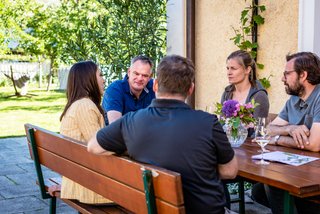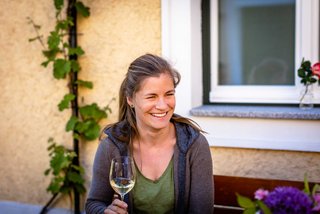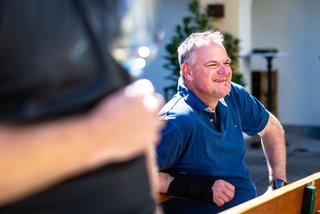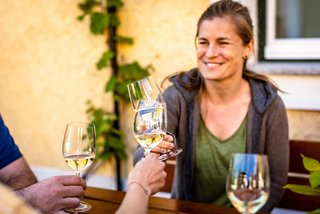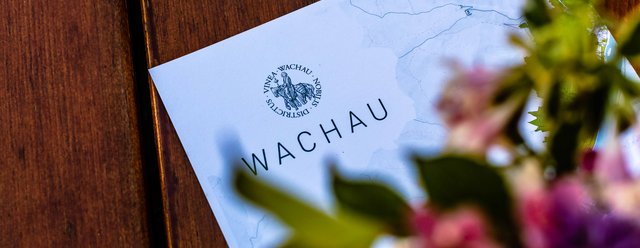A conversation about sustainability, cooperation and the Wachau’s future.
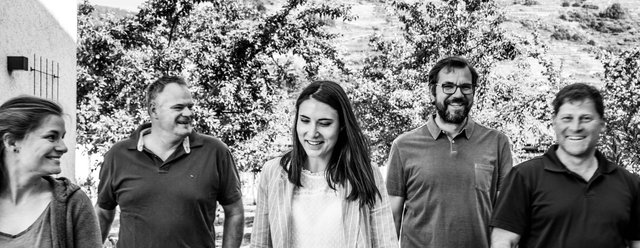
Via Vinea
The Wachau is the first winegrowing region to collectively take the step of implementing the Sustainable Austria quality seal. Winegrowers Hanna Hirtzberger, Heinz Frischengruber, Julia Donabaum, Emmerich H. Knoll and Andreas Eder see this as a good move.
Domäne Wachau cellar master Heinz Frischengruber recognises “more than one royal road leading to sustainable viticulture”. His road has taken him to the Knoll family estate, to exchange thoughts on a major ground-breaking decision: in May 2021, Vinea Wachau resolved to implement the Sustainable Austria quality seal. All members are to become certified by 2023. The decision affects no fewer than 200 of the region’s winegrowing operations. What is particularly significant here is that the entire region has collectively embarked on this path, as Vinea Wachau chairman Emmerich Knoll notes: “This is Vinea Wachau’s unique strength.
We are able to catalyse a broad awareness-building process.” He is proud of the 89 percent majority of winegrowers and vintners who came out in favour of the move.
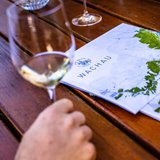
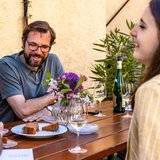
Not only does the decision affect wine as a product but also the premises underlying how the wine is produced.
The decision will bring on many changes in the way of sustainable cultivation. “At the same time, we will recognise that the Wachau has chosen a good path. Methods instinctively practised by many Wachau winegrowing families for generations are today unquestionably considered to be sustainable. As a case in point, just think of the dry stone walls, which are a significant factor accounting for the Wachau’s biodiversity.
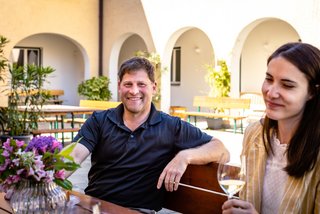
The commitment to sustainability is intended to pave the way to the next step in the Wachau’s development. “Every age has its central themes. Professionalism, or modern technology. We are now entering the age of sustainability. How do we manage our soils? That is one of the central issues. This is about nothing less than nature’s complexity,” says Heinz Frischengruber of Domäne Wachau, easily the region’s largest winegrower and already a certified operation. “Organic and sustainable are often seen as a trade-off. But the two don’t exclude one another. The one complements the other. And any development progresses step by step.”
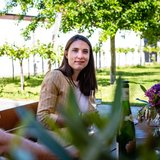
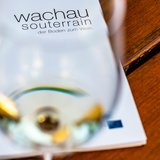
For the younger generation, ready to take over the helm at many estates, sustainable cultivation is a basic premise: “When we think of the vineyard areas reserved for blossoming plants, much has already happened. We are now giving back more to nature. That’s already visible in many vineyards,” Julia Donabaum observes. Andreas Eder from Mauternbach also sees this as the direction to take: “An important goal is to strengthen the plants, to help enhance their natural resilience.”
For Hanna Hirtzberger, Sustainable Austria means big change, including “the premises underlying how we produce wine. A bit of fine tuning here and there is hardly enough. This is a decision affecting basic principles.” The Wachau has now taken that decision.
